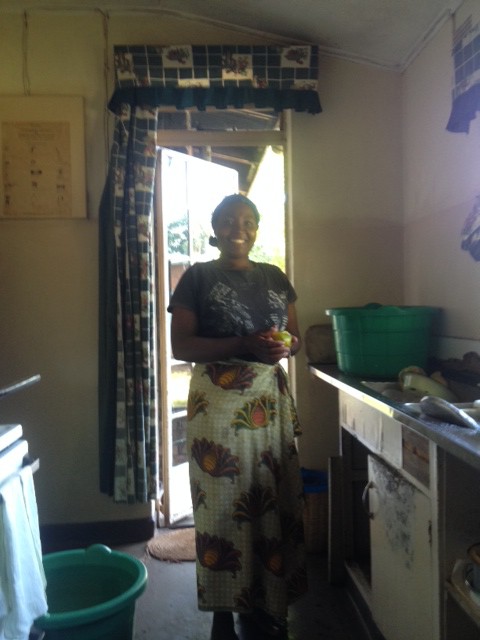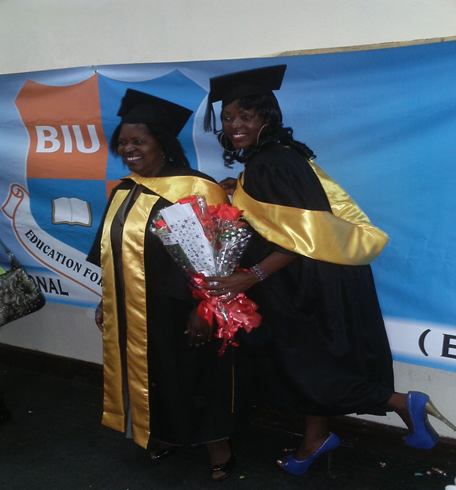A chief tells the story of her relationship with the University of Malawi’s Chancellor College.
She remembers the sugarcane, vast across the land.
She also remembers the milk, abundant and free of charge.
Those are the memories that come to Chief Chikanda’s mind when she remembers the area that now hosts Chancellor College.
“It used to be a white man’s estate. His name was Kayes,” she recalls. “He had planted maize and sugarcane; that was what he used to feed his cows. Kayes also had a maize mill, and we used to go there to go there to grind our maize into flour. Whenever you went to Kayes and asked him for the sugarcane, he would give it to you. He would also give you a glass of milk. Such a generous man.”
Chikanda’s account corroborates a 2009 article by Kingsley Jika, in which he wrote about Chancellor College’s history. In the article, Jika describes how C.B. Kayes, or ‘Khezi’ was “generally said to be friendly with the ‘natives’” and how he grew vegetables and sugarcane.
According to Chikanda, Kayes was very helpful, especially during the 1949 famine, when he distributed maize flour to people in the area.
“For Kayes, it was about maize, cows and sugarcane. But his was not the only estate in the area. In what we now call Old Naisi and as far as Nandolo, there was another estate which belonged to Williams. He used to cultivate tung; I’m told the oil is used as fuel for aeroplanes.”
The events to which Chikanda refers occurred during the colonial times. Born in 1944, Chikanda, whose name is Violet Dzinkambani, has lived in Zomba all her life. Her mother was Chief, and so was her sister, the current Group Village Head, Mrs Mpalo, popularly known as aNaphiri. The current chief took over from her sister in 2006, but her relationship with Chancellor College began long before that period.
“Independence came. We were there when people started building on what had been Kayes’ land, and we learned that there would now be a college in Zomba,”she recalls.
By this time, C.B. Kayes had died. Chikanda does not know if there was any agreement between Kamuzu Banda and the Kayes family in terms of land acquisition. However, according to Wellington Mbewe, who works at Chancellor College’s Registry and comes from Zomba, the Government decided to compensate the family after acquiring the land. The Kayes family seemed to have welcomed the move to open a college, later even sending a wall clock as a gift. As Jika pointed out, the clock has since disappeared due to acts of vandalism.
Even if Chikanda is not sure of the intricate details between how land passed from the Kayes family to the Malawi Government, she definitely remembers the anticipation amongst the people in the area as the college was being built.
“It was a time when we brewed thobwa [ a local malt-based drink] and zitumbuwa [fritters], which we sold to the people who were building Chanco. Business thrived,”she recalls.
Chikanda had another reason to be excited about the building. She was not chief at the time, and she was looking for a job.
“When the college was opened in 1973, I joined as a cleaner. There were only four halls of residence at the time; Kamuzu, Gweru, Chilembwe and Makata. I started off as a cleaner at Kamuzu Hall.”
“Accommodation was not a problem back then. But what was required from the students was discipline; boys were not allowed to go into girls’ hostels, and vice versa. ”
There was also the cafeteria, with an accompanying canteen. “Students would buy soap and lotion from the canteen. The food at the cafe was for free; students didn’t have to go out and buy food. And then there was the Senior Common Room, where lecturers used to go and eat.”
For Chikanda, one word summarises it all; dignity. Nostalgia is clearly evident as she narrates the past.
“Lecturers were like parents and were treated with respect. There was a good relationship between Chancellor College and the neighbouring communities.”
In 1982, Chikanda witnessed the completion of another building at Chancellor College: the Great Hall.
“I remember how, as women, we composed songs for the opening of the Great Hall:
Amayi muli kuti?
Tili ku Great Hall
Kunyadila Ngwazi
Aye tikondwele.
We are at the Great Hall
We are proud of the Ngwazi
Let us celebrate.]
Chikanda would go on to work in other departments at Chancellor College; she worked at the College Dispensary.
“Back then, it was in the building which now houses the Accounts Offices. I know it recently moved to the Chirunga area, but that Chirunga building used to be the Principal’s house. Later on, Principals did not stay in Chirunga, especially when students started rioting and breaking windows.”
She also worked in the Teaching Area as cleaning supervisor. Her last post was the Chemistry department.
“I had to stop working in 2009; I had started coughing, and I was told at the hospital that it was a reaction to chalk. So here I am today; I spend my time cleaning my house, or judging cases.”
She feels that there is one thing that has remained constant throughout the years; the relationship between Chancellor College and the community.
“We are invited to some functions at Chancellor College; that makes us feel included. For instance, I was part of the group that was invited to the Women’s Day of Prayer [two years ago], and we also took part in the tree planting exercise at the college.
“Students who do not have accommodation at the college rent houses at Chikanda; they become part of our community for some time.”
There is one thing that she would be happy to see as far as Chancellor College is concerned; a fence.
“That place is vast. Maybe if there was a fence, that would help. Elsewhere, colleges have fences. That way, people don’t get it anyhow. A fence would protect the place; it wouldn’t be porous.”
The days of milk and sugarcane are gone. But every year, there is a new crop that grows at Chancellor College; a crop of students.
Chief Chikanda will always be willing to host that crop on her land.



